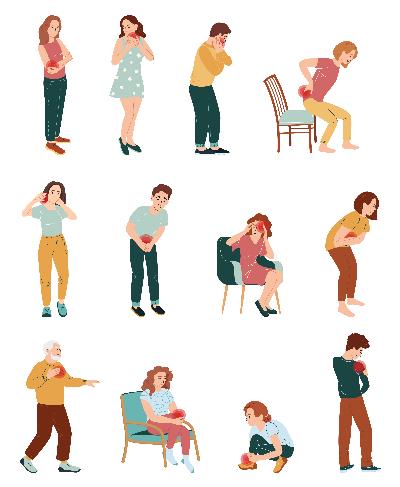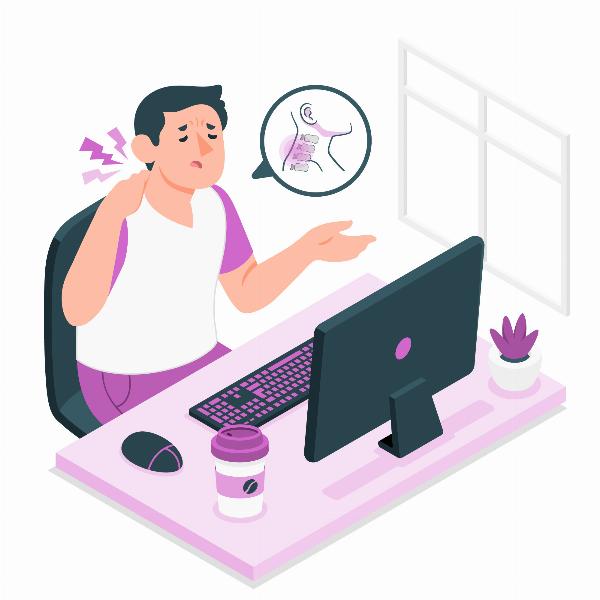How Pain Specialists Help You Manage Chronic Pain

Strong 8k brings an ultra-HD IPTV experience to your living room and your pocket.
Chronic pain can significantly impact daily life, affecting everything from physical activities to mental health. Managing this condition often requires a multifaceted approach, combining medical expertise with supportive therapies. Various healthcare professionals specialize in pain management, offering tailored strategies to help individuals cope with persistent discomfort.
One of the primary roles of these specialists is to conduct thorough assessments of each patient’s condition. This often involves detailed discussions about pain history, its onset, intensity, and how it affects daily living. Understanding the nuances of a patient’s experience is crucial. It enables the development of a personalized treatment plan, addressing both the physical and emotional components of pain.
A wide range of treatment options is available for chronic pain, often starting with non-invasive approaches. These can include physical therapy, where targeted exercises and manual techniques aim to improve mobility and strength. A physical therapist might focus on specific muscle groups, helping to alleviate tension and promote better movement patterns. This not only helps reduce pain but also empowers individuals to take an active role in their recovery.
Medication is another common avenue for managing chronic pain. Specialists typically evaluate the most effective types of medication for each patient, which may include over-the-counter pain relievers, prescription medications, or topical treatments. Opioids, though sometimes necessary for severe pain, are usually approached with caution due to their potential for dependence. A knowledgeable professional will weigh the benefits against the risks, ensuring that patients receive the most appropriate care.
In addition to traditional medical treatments, alternative therapies often complement standard approaches. Techniques such as acupuncture, massage therapy, and biofeedback can provide relief for many individuals. Acupuncture, for example, involves inserting thin needles into specific points on the body to help release tension and promote healing. Similarly, massage therapy can enhance relaxation and improve circulation, which may lead to a reduction in pain.
Psychological support is another critical aspect of managing chronic pain. Many individuals experience anxiety and depression related to their condition, making it essential to address the emotional facets alongside physical symptoms. Cognitive-behavioral therapy (CBT) is particularly effective, helping patients reframe negative thoughts and develop coping strategies. Engaging with a mental health professional can empower individuals to navigate their pain more effectively, fostering resilience in the face of ongoing challenges.
Education plays a vital role in pain management as well. Understanding the underlying causes of chronic pain can alleviate some of the anxiety associated with it. Patients who are informed about their condition often feel more in control and are better equipped to participate in their treatment plans. Specialists can provide resources and information about the latest research, therapies, and self-management techniques, guiding individuals toward making informed decisions about their care.
Support groups also offer a sense of community for those dealing with chronic pain. Connecting with others who share similar experiences can be incredibly validating. These groups often provide a platform for sharing coping strategies and emotional support, helping individuals feel less isolated in their struggles. A supportive network can enhance motivation and encourage proactive approaches to managing pain.
For some patients, interventional procedures may be necessary. These techniques can include injections, nerve blocks, or even surgical options, depending on the specific condition and its severity. Such procedures are generally considered when conservative treatments haven’t provided sufficient relief. A comprehensive evaluation ensures that the chosen intervention aligns with the patient’s overall treatment goals and lifestyle.
The journey of managing chronic pain is often complex and requires a collaborative approach. By working closely with various healthcare providers, patients can create a cohesive plan that addresses their unique needs. This teamwork is vital, as it allows for ongoing adjustments and improvements in the treatment strategy.
Ultimately, effective management of chronic pain hinges on a holistic approach. By combining medical treatments with physical therapies, psychological support, and education, individuals can find relief and regain control over their lives. Pain treatment specialists play a crucial role in guiding this comprehensive strategy, ensuring that each aspect of care is tailored to individual needs. With the right support, living with chronic pain doesn’t have to mean sacrificing quality of life. Embracing a multifaceted treatment strategy can pave the way for improved function, greater resilience, and a more fulfilling existence despite the challenges of chronic pain.
Note: IndiBlogHub features both user-submitted and editorial content. We do not verify third-party contributions. Read our Disclaimer and Privacy Policyfor details.



